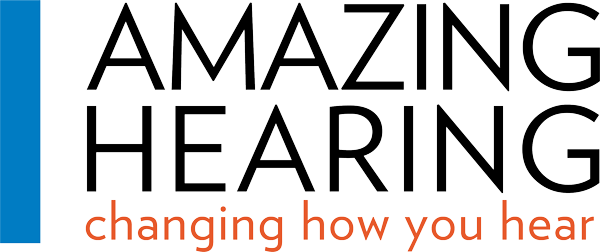Getting Use To New Sounds After Purchasing Hearing Aids
Many people are surprised to learn that it can take a while to get use to your hearing aids, especially if you’ve never worn them before.
After getting new hearing aids, it may take a few days to weeks to get used to them.
Along with learning how they work, you’re also grappling with all the new sounds and stimuli that your brain has forgotten in recent years. Our audiologist and office team will be an important partner as you learn to use your hearing aids, and you should not hesitate to reach out to us between appointments if you have any questions.
The biggest change may be your own voice
For some people, the biggest change is the sound of their own voice. You may find that, at first, you voice sounds funny or unfamiliar, and may sound louder than you’d like. Chewing and swallowing may be especially noticeable. These sensations, which are annoying at first, will dissipate the more you wear your hearing aids. (If they don’t, be sure to schedule an appointment to see your hearing care provider.)
Tips for getting used to hearing aids
- Wear them at home first: Let your friends and family know you’re using your new hearing aids so they can help you stay committed to better hearing as you wear your aids in more challenging environments. Reading aloud or talking to your pet can also help you get used to your own voice, too.
- Give yourself homework: For extra practice with your hearing aids, try to locate the sources of all the sounds in your environment, or listen to audio books or TV while you’re home alone.
- Take breaks if needed: The goal is to wear your hearing aids at least 10 to 12 hours a day.
- Attend all In-Trial follow-up visits: During these visits together we will fine-tune the sounds you’re hearing, adjust the earmold fit in your ear and talk about the situations that are most challenging for you. We will schedule you for three In-Trial visits following your fitting.
- Attend our Hearing Therapy Classes and Workshops: These classes are very helpful and lead to greater satisfaction with hearing aid use. Check our website for the Workshops and Hearing Therapy Classes to sign up and attend them.
- Anticipate some frustration, especially with background noise: If you haven’t been hearing well in a few years, hearing aids flood your ears with sounds you didn’t notice before, and it can be a bit of sound overload. For example, the humming of the refrigerator—a background noise that most people seldom notice—might seem very loud or unbearable. This is because your brain has forgotten how to sort out background noise and to prioritize certain sounds over others. It’s important for you to be patient and take it slow as their brains adjust.
- Report any pain: Depending on your hearing needs, you may have custom-fitted earmolds, which means they should fit comfortably within your ears. Sometimes hearing aids can cause slight tenderness at first, but if they cause any amount of ear pain, you should call us immediately to schedule an appointment with our audiologist. Often times, receiver-in-the-ear styles with domes are easier to adjust to because they don’t cause a “plugged up” feeling in the ears like earmolds can, and they’re gentle on the ear canals.
If your loved one is getting hearing aids, here is how you can help:
There are many things that you can do to help your loved one adjust to his or her new hearing aids. You can be a patient one-on-one conversation partner as your loved one practices listening. Another thing that many people try is to read the newspaper or a book out loud as your loved one with hearing aids read along silently—this can help him or her re-learn how to recognize particularly difficult sounds.
You can also quiz him or her on sound recognition. Come up with a list of word pairs—like dish and fish or pop and top—that differ by only one consonant sound. Read them aloud so your loved one can watch your lip movements, and then practice with him or her by having that person look away and try to differentiate between the words. Consonant sounds are the most difficult.
You can also help by:
- Being patient. It can be challenging and frustrating to adjust to new hearing aids, but it’s worth it in the long run.
- Offering a listening ear. Your partner or loved one with hearing loss might need to vent his or her frustrations, and you can offer empathy and moral support during particularly tough days.
- Participating in appointments. Your loved one will have three In-Trial appointments after their fitting. Having you there can be useful for any lingering questions.
- Laughing and keeping a sense of humor. This is particularly important in stressful times.
- Learning more about hearing loss, hearing aids, and hearing aid accessories like batteries, wax guards and domes that your partner may need help changing.
- Learning about the benefits and discussing them. Hearing loss is a type of sensory deprivation known as auditory deprivation. But wearing hearing aids overcomes this deprivation, one of many benefits your loved one will now reap.
Consider auditory rehabilitation
If you haven’t been hearing well for a while, you may benefit from an added boost of auditory training or rehabilitation. Our speech therapist Cindy Nirenberg holds Group and Individual therapy and at home sessions with Lace AI Pro.
Do not fret—just as muscles atrophy when they haven’t been used in a while, so too does our auditory system. It needs “exercising” to regain what it has been missing.
Why should you work with our audiologist and hearing healthcare professional?
Just like no two fingerprints are alike, no two people have the same hearing issues. One size does not fit all for someone who is struggling in real-world listening environments. That is why Amazing Hearing audiologists treat each patient as an individual; they have different needs for different situations. Our goal, our mission, is to help find the right solution for you. We listen, we ask questions, we work to find the right solution for you.
Amazing Hearing
There’s no reason to live with untreated hearing loss. Schedule a hearing test with Amazing Hearing, so you can get help as soon as possible. We provide comprehensive hearing health services, from tests to hearing aid fittings. Contact us today to learn more!



